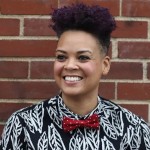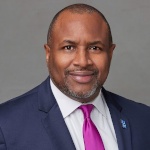Although Social Movement Communication could be considered in its own separate and distinct scholarly dominion, housing this scholarship under the auspices of Political Communication is helpful in both conceptualizing social movements (there is always an underlining political goal embedded within a movement, for example) and highlighting the interdisciplinarity of the research.
Indeed, much like Political Communication as a whole, Social Movement Communication involves a diverse array of methods and methodological approaches, and draws upon research conducted in History, Political Science, Sociology, and Women’s and Gender Studies, to name but a few. Moreover, rhetorical, qualitative, quantitative, and mixed-methods researchers can each reveal the communicative strategies and nuances at work within social movements – both past and present.
To gain a better understanding of the work Social Movement Communication scholars do, we must first define social movements and then trace the development of this scholarship in Communication Studies. From there, it is possible to discuss where Social Movement Communication scholarship is at today, and offer some insights into where the discipline is going in the future.
Defining Social Movements
To begin, a social movement can be loosely defined as a socially and/or politically “organized effort by a significant number of people to change (or resist change)” (Scott & Marshall, 2009). In other words, a social movement is a group of people who see a wrong and want to right it through social action (protests, demonstrations, public addresses/rallies), resistance (strikes and sit ins), and organizing (voting, petitions, lobbying).
While this is certainly a helpful starting point in beginning to conceptualize what a social movement is, there are other definitions of social movements that emphasize different facets of their constitution. Indeed, some definitions highlight the political goals that are often at the foundation of many social movements – that is the legislative or policy changes they may seek. Other definitions may emphasize the fight against oppression frequently at the heart of many social movements and their desire to shed light on these oppressions.
Enduring connotations of social movements depict these movements as highly structured organizations with a clear figurehead, leader, or group of spokespeople, and an even clearer goal. Oftentimes, images of Dr. Martin Luther King and Malcom X come to mind with this view of social movements. While this definition and the corresponding connotations certainly help to begin to conceptualize what social movements are, the on-the-ground reality is far more nuanced than what the above suggests.
Indeed, it is important to note that in addition to the differing definitions of social movements, examples of social movements vary drastically – especially when we take into consideration other factors such as a movement’s structure, tactics, and efficacy. For example, the various instantiations of the Occupy Wall Street Movement that came into being in the early 2010s are noteworthy for their organic, grassroots, and leaderless structure, as well as their “camp in” or “occupying” tactics that, in hindsight, produced little in the realm of political results.
One could argue, however, that while the Occupy Movement failed in producing tangible policy outcomes, they thoroughly succeeded in changing and redefining the larger conversation regarding the intersection of wealth, inequality, business, and government in America. Indeed, their spotlight on income inequality and corporate greed, among others, helped progressive activists in other areas better frame and advocate for their various causes.
Juxtaposing the Occupy Movement, the Tea Party Movement also challenged popular connotations of what constitutes a social movement. Again, considering structure, tactics, and efficacy, the Tea Party Movement was incredibly successful in harnessing their various – and often extreme – tactics to produce results based on their political goals. Coming to the fore as a response to deliberation over what would become the Patient Protection and Affordable Care Act (known colloquially as “Obamacare”), the Tea Party Movement helped Republicans gain control of the House of Representatives in the 2010 Midterm Elections.
Finally, it is important to dispel the notion that social movements are always benevolent, good faith reactions to real or perceived injustice. Indeed, Communication scholars have recently started to examine the growing popularity of dangerous conspiracy theories like QAnon and misogynistic internet enclaves that stylize themselves as “incels” and which aim to operate as loose social movements.
Although their theories have been thoroughly debunked by scholars and reputable media organizations alike, the loose internet-based movement behind QAnon, for example, feeds off misinformation to keep the “movement” alive – and this “community” has been labeled a “domestic terrorism threat” by the FBI.
In an interview with Georgia Public Broadcasting, online misinformation researcher Dr. Dror Walter of Georgia State University’s Department of Communication highlighted some concepts and context crucial to Social Movement Communication to explain QAnon’s rise. In particular, Dr. Walter pointed to the “participatory” nature and the “empowerment factor” behind QAnon – “you have to do your own research” and “follow all of the breadcrumbs” to help the movement’s founding purpose. Additionally, similar to good-faith social movements, socio-political anxieties help fuel the rise of these more sinister and loosely knit social movements. In short, contemporary scholarship continues to challenge and redefine what social movements are in our 21st Century online environment.
Tracing Social Movement Communication Scholarship
In our Introductory Guide to LGBTQIA Communication Studies, we wrote that “the history of the United States, and really of the entire world, can be placed upon a timeline of oppression, violence, and struggle” and many in America have come to view social movements as a sort of “mythic inevitability,” destined to happen, a powerful force, and cure of society’s ills. More critical readings reveal that social movements are fragile – they live and die by communication and the effectiveness of their communication and media strategies.
Indeed, while social movements are thoroughly woven into the fabric of American culture and history, the study of their communication is a relatively recent development. Mentioned above, the study of social movements spans several academic disciplines and can be traced back to the founding of America. For example, historians and sociologists have examined early Temperance Movements and traced their development in the 19th Century to the culmination of their efforts with the passage of the 18th Amendment – known commonly as Prohibition – in the early 20th Century. Another example of social movement scholarship’s interdisciplinarity and historical reach is the study of the Abolition Movement in antebellum America.
In Communication Studies, the social upheaval of the 1960’s and 1970’s provided the catalyst for the discipline to more thoroughly examine social movements from a communicative perspective. In particular, Communication scholars, particularly of the rhetorical variety, began to examine the communicative “struggles for civil rights, Black Power, feminism, peace, and campus democracy” (Cox & Foust, 2009), often referred to as the “rhetoric of the streets.”
As social movements evolved and entered more digital and online public spaces, Communication researchers outside of rhetoric turned their focus to these new types of social movements. More recently, social media outlets such as Reddit, Twitter, and Facebook have provided scholars with an opportunity to examine the proliferation of social movements in the digital sphere.
Spotlight on Scholarship - Featured Scholars in Social Movement Communication
Social Movement Communication scholars approach their research from an array of methodological perspectives and conduct their research with several different methods of examination. The scholars featured below are representative of this diverse array of methods and methodological perspectives.
As a “scholar of critical race, feminist, and disability studies,” Dr. Bailey’s work “focuses on marginalized groups’ use of digital media to promote social justice” (Moya Bailey, n.d.). Dr. Bailey is currently an Associate Professor in the Department of Communication Studies at Northwestern University. Dr. Bailey’s work extends beyond the academic sphere, contributing to the Allied Media Conference and serving as the “digital alchemist” for the Octavia E. Butler Legacy Network. You can read more about Dr. Bailey here.

Currently the Chair of the Department of Mexican American & Latina/o Studies at the University of Texas at Austin, Dr. Chávez is a rhetorical critic that “utilizes textual and field-based methods” to study “social movement building, activist rhetoric, and coalitional politics” (Profile for Karma R. Chávez at UT Austin, n.d.). Admittedly, it is difficult to select from Dr. Chávez’s storied list of published work to feature here. However, her new book, The Borders of AIDS: Race, Quarantine, and Resistance, is scheduled to be released in the Spring of 2021 and is sure to leave a lasting mark across several disciplines. You can read more about Dr. Chávez here.

In the discipline today, Dr. Corrigan’s name is synonymous with advocacy and excellence in scholarship. Indeed, Dr. Corrigan’s research continues to appear in top journals like the Quarterly Journal of Speech and Communication & Critical/Cultural Studies – and her most recent book Black Feelings: Race and Affect in the Long Sixties was published in early 2020. At the University of Arkansas, Dr. Corrigan teaches an array of different classes like the Rhetoric of Social Movements and Gender, Race, and Power. You can read more about Dr. Corrigan here.

Co-authoring the preeminent source for the study of Social Movement Rhetoric, Dr. Foust is a leading voice in the discipline today. Dr. Foust’s scholarship “considers how the often non-normative, un-institutionalized voices of resistance work to change their communities, and how normative or institutionalized discourses reinforce their ability to maintain power” (Christina R. Foust | Communication Studies Department | University of Denver, n.d.). Additionally, Dr. Foust is the author of the book Transgression as a Mode of Resistance: Rethinking Social Movement in an Era of Corporate Globalization.

As a pioneer for the study of Environmental and Animal Rights Communication, Dr. Freeman investigates the communication strategies of these relatively new social justice movements. Her award-winning 2014 book Framing Farming: Communication Strategies for Animal Rights examines this nascent movement that has become ever more relevant in the last decade. Additionally, Dr. Freeman is currently serving as the Graduate Director for several Graduate Programs in the Department of Communication at Georgia State University. You can read more about Dr. Freeman here.

Dr. Garrett is currently a professor in the School of Communication at The Ohio State University who studies “online political communication, online news, and the ways in which citizens and activists use new technologies to shape their engagement with contentious political topics” (Bio / R. Kelly Garrett, Ph.D, n.d.). Additionally, Dr. Garrett teaches courses in Social Media, Political Communication, and Communication Research Methods. You can read more about Dr. Garrett on his website.

Dr. Jackson “studies how media, journalism, and technology are used by and represent marginalized publics” (Sarah J. Jackson, Ph.D. | Annenberg School for Communication, n.d.). In addition to several books in this area, Dr. Jackson’s work can be found in several prestigious journals, including the Journal of Communication, the International Journal of Press Politics, and Feminist Media Studies. Most recently, Dr. Jackson’s co-authored second book with Drs. Bailey (featured above) and Foucault Welles, Hashtag Activism: Networks of Race and Gender Justice, “focuses on the use of Twitter in contemporary social movements.” You can read more about Dr. Jackson here.

In addition to their position as Associate Professor in the Department of Communication at Saint Louis University, Dr. Johnson is also the co-founder of the Institute for Healing Justice and Equity and the founder of The Justice Fleet. Dr. Johnson’s research interests include intercultural communication, rhetorical ethnography, social justice and arts activism, and popular culture. In their role as an instructor, Dr. Johnson teaches courses in Intercultural Communication, Human Communication & Culture, Intergroup Dialogue, and Stereotyping & Bias in Mass Media. You can read more about Dr. Johnson here.

Dr. Johnson is currently an Associate Professor of Rhetoric and Media Studies in the Department of Communication and Film at the University of Memphis with an ongoing research agenda that “explore(s) the nexus between rhetoric, theology and the Bible, religion and politics” with a particular focus on Barack Obama, W.E.B. Du Bois, Donald Trump, and, very recently, Tyler Perry (Andre E. Johnson | University of Memphis, n.d.). In 2018, Dr. Johnson’s coauthored book with Dr. Amanda Edgar, The Struggle Over Black Lives Matter and All Lives Matter, “won the NCA African American Communication and Culture Division Outstanding Book Award.” You can read more about Dr. Johnson here.

Although currently an associate professor at The George Washington University’s School of Media and Public Affairs, Dr. Karpf was previously an “environmental organizer” working with the Sierra Club in various positions from 1999 to 2010. Now, Dr. Karpf’s “work focuses on strategic communication practices of political associations in America, with a particular interest in Internet-related strategies.” Perhaps best known for his book The MoveOn Effect: The Unexpected Transformation of American Political Advocacy, Dr. Karpf continues to integrate his practical experience into his research. You can read more about Dr. Karpf here.

Dr. Lechuga’s research “explores the ways migrants and migrant communities are subjected in the US by austere migration control structures and white nationalist ideologies” (Michael Lechuga: Communication & Journalism | The University of New Mexico, n.d.). He is currently writing his second book, Alien Affects, which seeks to “illuminate the complex relationships between Hollywood alien invasion film industries and the industries tasked with securing the México/U.S. border.” At the University of New Mexico, Dr. Lechuga teaches courses spanning Latina/o/x Studies, Communication Studies, Rhetoric, Migration and Settler Colonialism Studies, and Affect Studies. You can read more about Dr. Lechuga here.

In addition to her position as an Assistant Professor of African and African American Studies and Rhetoric at Arizona State University, Dr. Ore also serves as the Lincoln Professor of Ethics in the School of Social Transformation (Ersula Ore | Arizona State University, n.d.). Dr. Ore’s 2019 book, Lynching: Violence, Rhetoric, and American Identity, “explores lynching as a racialized practice of civic engagement” that demarcates lines of citizenship in the United States. Dr. Ore also teaches an array of different classes in the realm of Social Movement Communication. You can read more about Dr. Ore here.

Currently a Doctoral Candidate in the Department of Communication at Georgia State University, Ms. Pruden is, unquestionably, a rising star in the field. Indeed, her research utilizes theories and concepts from Social Movement Communication to examine misogynistic and oppressive language of violent, far-right enclaves on the internet and in right-wing populist movements around the world. Recently, Ms. Pruden’s essay “Under His Eye: Mediated Misogyny in the Era of Global Conservative Populism” appeared as the opening chapter in the book Misogyny and Media in the Age of Trump. Additionally, Ms. Pruden is a Presidential Fellow in the prestigious Transcultural Conflict and Violence Initiative at Georgia State University. You can read more about Ms. Pruden here.
Social Movement Communication Scholarship Today
While many continue to tap into American collective memory to draw their connotations of what social movements are from bygone protests – Women’s Suffrage, Civil Rights, and the Student Movement against the Vietnam War to name but a few – the social movements of here and now offer scholars a way into seeing the ever-changing nature of Social Movement Communication. Indeed, today’s social movements can simultaneously be viewed as continuations of past social movements that employ new media unique to the 21st Century and novel communication strategies to advance their cause.
For example, the Black Lives Matter (BLM) movement can certainly be viewed as forwarding the cause that was put forth by organizations during the Civil Rights Era. However, BLM activists and Social Movement Communication scholars would convincingly argue that their message and messaging strategies are different and distinct from past social movements, focusing instead and more specifically on the visceral reality that stems from disproportionate and targeted police brutality against Black Americans.
Burgeoning scholars studying Social Movement Communication can further reveal the communicative strategies and nuances of 21st Century Social Movements. By drawing on a rich body of literature that is inherently interdisciplinary, these scholars have the potential to redefine what we know about Social Movement Communication in today’s social and media environment. Additionally, much like their Critical Rhetoric counterparts, Social Movement Communication scholars can work with activists and organizers in Social Movements to ultimately better the human condition here in America and around the world.
Finally, students interested in studying Social Movement Communication can continue to utilize resources on MastersinCommunications.com to help research potential programs that fit with their research interests. Additionally, prospective students are encouraged to reach out to scholars in the discipline – either in person at a conference or via email – to ask questions and gain a better understanding of the important work that goes into studying Social Movement Communication.
Sources and Additional Resources
To learn more about the field of social movement communication, check out the following resources:
- Andre E. Johnson | University of Memphis. (n.d.). https://www.memphis.edu/communication/people/johnson.php
- Bailey, M. (2017, April 19). Bio. Moya Bailey. https://www.moyabailey.com/
- Bio / R. Kelly Garrett, Ph.D. (n.d.). https://rkellygarrett.com/bio/
- Cox, R., & Foust, C. R. (2009). Social Movement Rhetoric. In The SAGE Handbook of Rhetorical Studies. SAGE Publications.
- Ersula Ore | Arizona State University. (n.d.). https://search.asu.edu/profile/1751324
- Michael Lechuga: Communication & Journalism | The University of New Mexico. (n.d.). https://cjdept.unm.edu/people/faculty/profile/michael-lechuga.html
- Prescott, V., & Mahadevan, P. (n.d.). How QAnon Is Migrating From The Dark Web Into Georgia Politics. Georgia Public Broadcasting. https://www.gpb.org/news/2020/07/16/how-qanon-migrating-the-dark-web-georgia-politics
- Profile for Karma R. Chávez at UT Austin. (n.d.). https://liberalarts.utexas.edu/mals/faculty/kc32638
- Sarah J. Jackson, Ph.D. | Annenberg School for Communication. (n.d.). https://www.asc.upenn.edu/people/faculty/sarah-j-jackson-phd
- Scott, J., & Marshall, G. (2009). Social movements. In A Dictionary of Sociology. Oxford University Press. https://www.oxfordreference.com/display/10.1093/acref/9780199533008.001.0001/acref-9780199533008-e-2148
Author’s Note: I would like to thank Dr. Lisa Corrigan for her feedback on this article. Dr. Corrigan doesn’t just write about Social Movement Communication – her actions and advocacy both within and outside academia show that she is tirelessly committed to challenging injustice wherever it may rear its evil head.
Additional Topics on Research in Political Communication

Our Guide to Political Communication Research examines how political messaging and conversations between political candidates, parties, government agencies, advocacy groups, and the public shape policy and society.

This article delves into the history of presidential communication, the impact that this form of political discourse continues to have on society, and current scholarship in the field.


